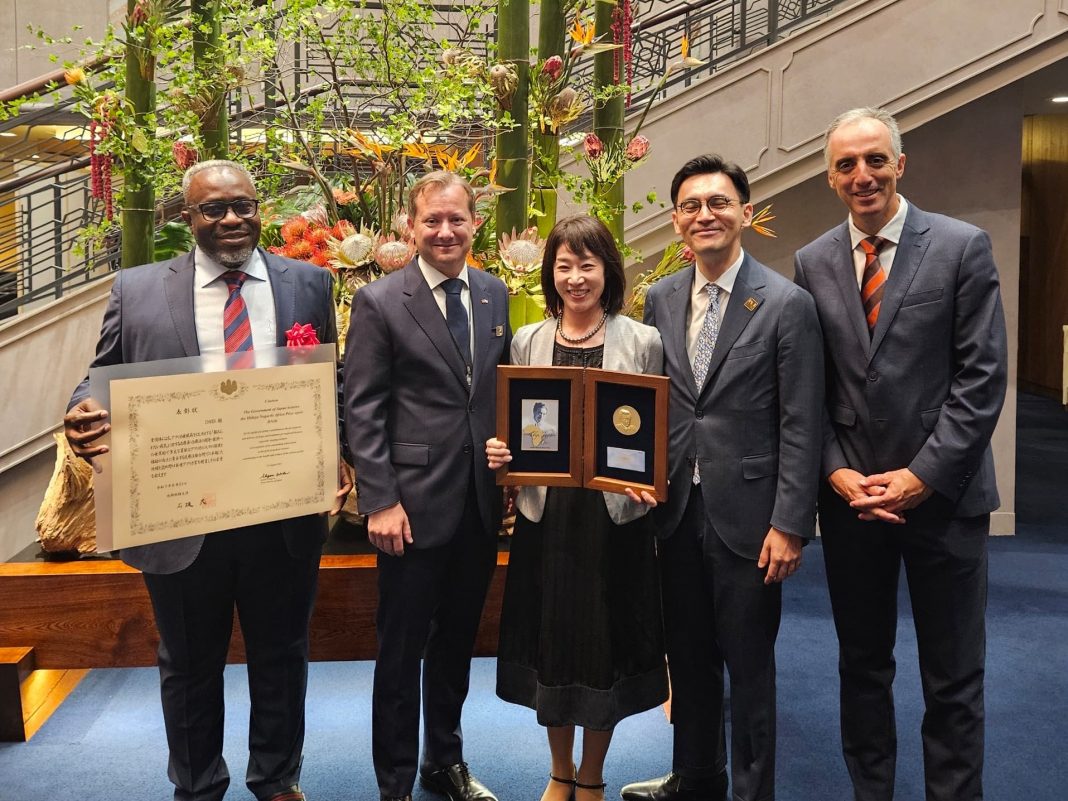By Samantha Linda
The Drugs for Neglected Diseases initiative (DNDi) received the Hideyo Noguchi Africa Prize, Japan’s highest medical honor, for its innovative efforts to create and distribute novel medications for neglected tropical diseases (NTDs) in Africa.
DNDi, a non-profit research and development organization established in 2003, was recognized for its patient-driven approach, which has led to the development of 13 innovative medicines for severe diseases that are often overlooked by large pharmaceutical companies. These include the world’s first all-oral treatment for sleeping sickness, as well as advancements in leishmaniasis, Chagas disease, HIV, and mycetoma.
This award is a recognition not just of DNDi’s science but also of African-led innovation. One of DNDi’s founding partners is the Kenya Medical Research Institute (KEMRI), making this win particularly significant for the continent.
The ceremony, attended by the Emperor and Empress of Japan and hosted by Prime Minister Shigeru Ishiba, commemorated DNDi’s 22-year journey of prioritizing neglected patients in research. DNDi’s Executive Director, Dr. Luis Pizarro, hailed the legacy of Dr. Hideyo Noguchi, a Japanese scientist who died in Africa while investigating yellow fever in 1928.
“Almost one hundred years after his death, many of these diseases are still neglected,” Dr. Pizarro remarked. “This is why DNDi was created—to bring the best medical innovation to the most neglected patients.”
From Central Africa to the Sahel and East Africa, DNDi’s work has saved lives in communities that often lack access to affordable medicines. The organization has worked closely with local research institutions, ministries of health, and community health workers to test, adapt, and distribute treatments that fit African realities.
Dr. Eric Ochomo, Head of Entomology, KEMRI noted in earlier interviews that DNDi’s partnerships have helped ensure that solutions are not just imported but co-created with African scientists. This collaborative model strengthens health systems while delivering treatments.
What distinguishes DNDi is its collaboration model. Instead of operating independently, it brings together universities, governments, non-profits, and the corporate sector to share risks and costs. As Daisuke Imoto, DNDi’s Japan Director, noted, “These accomplishments are attainable because of our partners’ devotion. This exemplifies the power of science and international solidarity.”
Even while DNDi commemorates this milestone, its leaders have emphasized that the fight is far from over. Dr. Wilfried Kalonji Mutombo, DNDi’s Head of Clinical Operations in the Democratic Republic of Congo, reminded the audience that innovation is essential: “Neglected diseases inflict misery every day. We urgently need improved medicines for our patients—and for that, we need ongoing medical innovation.”






